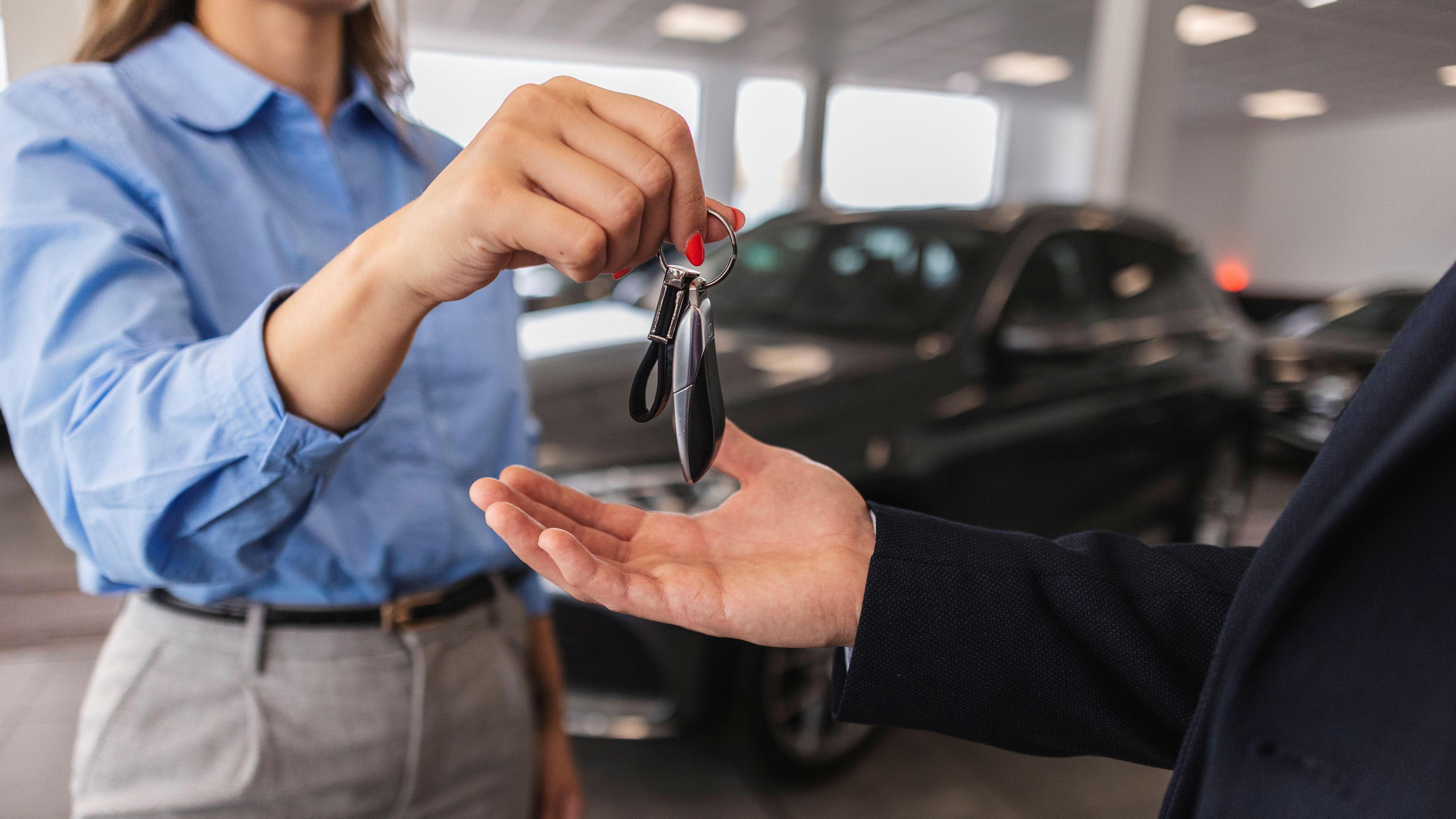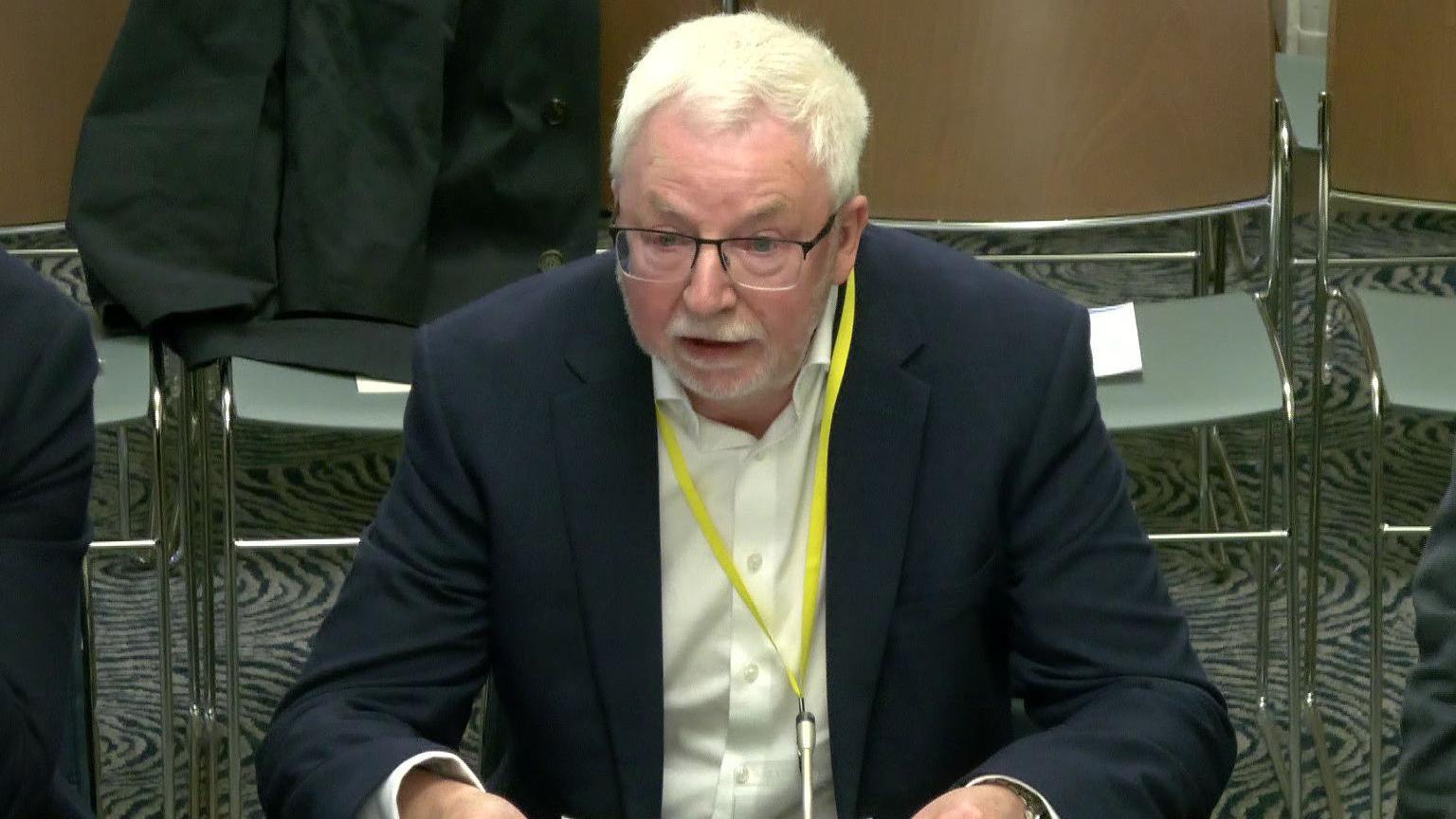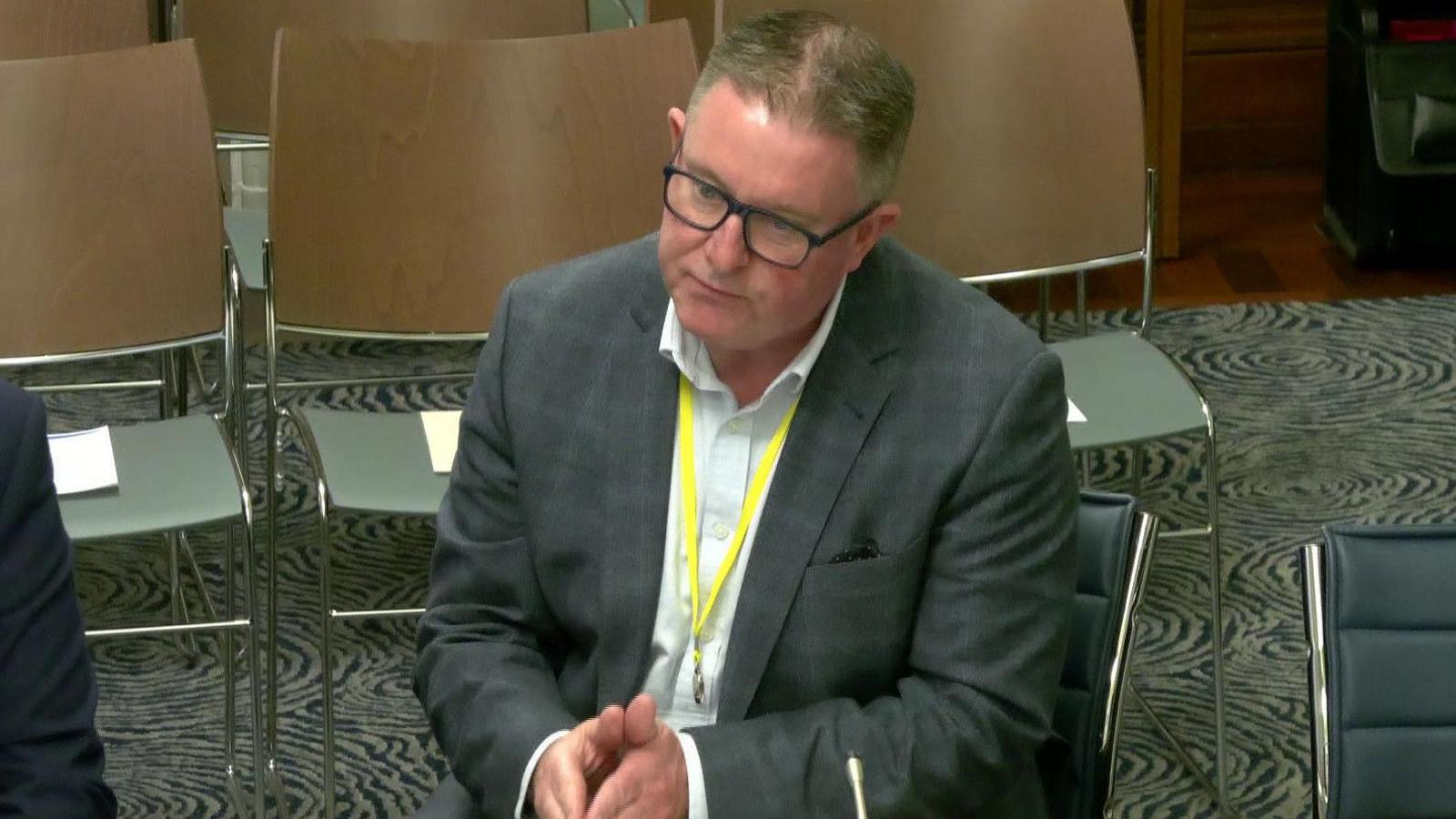Brexit means 'less choice, more cost' for new car sales, says trade body

The National Franchised Dealership Association has warned that the industry faces a "generational challenge" from post-Brexit trading rules
- Published
New models from popular car manufacturers such as Vauxhall, Renault, Citroen, Peugeot and Jaguar Land Rover may not be sold in Northern Ireland because of the Windsor framework, according to the body representing car dealerships.
The National Franchised Dealership Association (NFDA) has warned that the industry faces a "generational challenge" from post-Brexit trading rules, which will mean higher costs and reduced choice for consumers.
From 1 January new cars registered in Northern Ireland will have to have an "EU type" approval, while cars sold in the rest of the UK will need a "GB type" approval.
However, some big manufacturers are only opting for the GB certification on new models.
Those models will not be able to be registered as new cars in Northern Ireland unless the rules change.
The Windsor Framework was intended to help facilitate trade between Northern Ireland and Great Britain in the aftermath of Brexit, while also maintaining the integrity of the EU's single market.
The arrangements effectively kept Northern Ireland inside the EU's single market for goods, giving the EU an incentive to ensure goods sold here align with its standards.
The rules have provided businesses with greater certainty around trading arrangements but have also come in for sharp criticism.
'Higher costs'
Alastair Peoples, spokesman for the NFDA, said the change will mean "less choice for anyone in Northern Ireland" compared to consumers in the rest of the UK and will also lead to higher costs.
"We're a small market in relative terms to the UK and commercially car manufacturers are now starting to make vehicles only for their biggest market, Great Britain.
"These rules also mean higher prices for vehicles which do manage to make it through."
The NFDA said the local market is already showing the strain.
While sales of new cars are increasing in Great Britain, dealerships here are seeing a marked decline.
The motor industry in Northern Ireland is currently worth about £3bn per year, employing around 17,500 people.
The changes loom when dealerships across the UK are already braced for the impact of the chancellor's rumoured cuts to the Motability Scheme and its likely hit to new car sales.
Stormont's Economy Committee has asked Northern Ireland's Secretary of State Hilary Benn to urgently look at the issue.

Alastair Peoples, from the NFDA, says "customers in Northern Ireland are experiencing reduced choice"
Speaking at the finance committee on Wednesday, Mr Peoples said: "Those serious and detrimental issues we highlighted some months ago are now having a critical effect with dealers seriously considering job losses as they now plan for next year."
"Customers in Northern Ireland are experiencing reduced choice in new vehicles now with certain models no longer available locally and facing higher costs compared to Great Britain."
'The gap is getting wider'

Jeff McCartney, from Charles Hurst, says "The gap is getting wider and wider" between the NI and GB markets
Jeff McCartney, from Charles Hurst, used Vauxhall as an example to show how a "big player in the market" is doing under the post-Brexit arrangements.
"In the UK, their retail sales, year to date, are up 16% - in Northern Ireland, they're down 59%; it is massive.
"The gap is getting wider and wider as the year progresses."